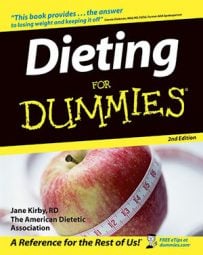Athletes have special dietary needs, particularly when they want to lose weight. To maintain performance, athletes in training need extra calories in their diets — especially carbohydrates and protein.
Like your carbohydrate needs, your protein needs are calculated based on your weight and your level of physical activity. Endurance exercise increases protein and carbohydrate requirements. Building muscle takes added protein, too. And because one of the goals of weight loss for athletes is increasing muscle mass, eating extra protein is recommended for athletes who diet.The following lays it all out for you. Notice there is no separate recommendation for maintaining muscle. Nor is there a recommendation for protein higher than 1 gram per pound of body weight because there is no proven benefit that higher levels enhance muscle building — despite recommendations and testimonials dispensed in the locker room.
Muscle building takes adequate protein plus adequate calories.
| Activity Level | Grams of Protein per Pound per Day |
|---|---|
| Recreational adult (noncompeting) | 0.5 to 0.75 |
| Competitive athlete | 0.6 to 0.9 |
| Muscle building | 0.7 to 0.9 |
| Weight loss | 0.7 to 1.0 |

